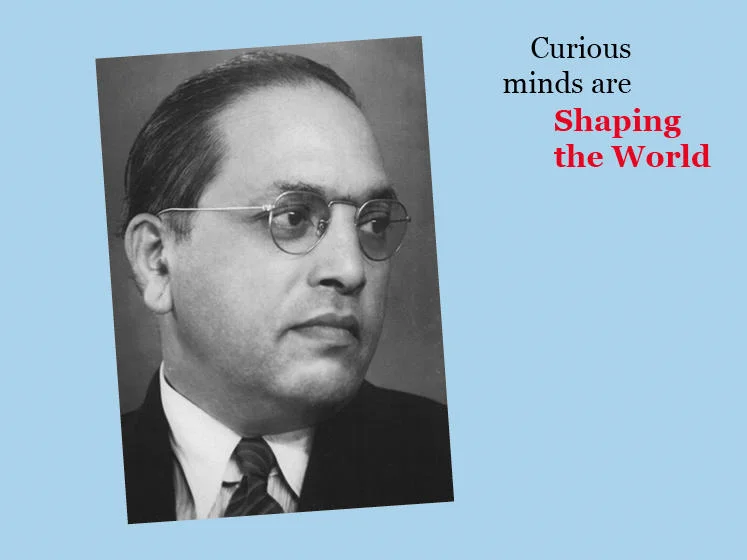Dr Bhimrao Ramji Ambedkar
MSc 1921 & PhD 1923

Bhimrao Ramji Ambedkar (1891-1956) was an Indian jurist, economist, social reformer and political leader. Perhaps best known as the principal architect of the Indian Constitution and a staunch champion of Dalit rights (or "Untouchables" as they were referred to in colonial India), Ambedkar completed a Masters in 1921 and a PhD in 1923, at LSE.
Ambedkar played a key role in the discussions leading up to Indian independence, for example as one of the two Untouchable delegates chosen by the British to attend the Round Table conferences on India’s constitutional status in the early 1930s. He also served as the first Minister of Law and Justice in post-colonial India between 1947 and 1951.
Despite his lowly caste, known as Mahar – a group which was viewed by the British as "inferior village servants", Ambedkar’s father had become an officer in the Indian Army and was able to insist that his sons should be educated so Ambedkar was allowed to attend school. Ambedkar was the first in his community to graduate High School and went on to study for a BA in Economics and Politics at Bombay University, where he met Sayaji Rao III, the Maharajah of the princely state of Baroda.
The Maharajah was an active advocate of social reforms, including the removal of untouchability. He sponsored Ambedkar’s further education abroad, first at Columbia University in New York where he completed a Masters and a PhD, and later at LSE. During this period Ambedkar studied economics, history and political science, and wrote on a wide range of topics, including the history of caste in India. There is also evidence in his letters at this time of his belief in education as a path to progress, with a particular emphasis on female education.
Over the next twenty years, he played a key role in organising the Untouchables. He created Dalit newspapers, social and cultural institutions, attended more conferences of the Depressed Classes, initiated protests against discrimination in temple entry and access to water, and passionately promoted Dalit access to education.
Despite Ambedkar’s differences with Congress, when India became independent in August 1947, Prime Minister Nehru invited him to be the first Minister of Law and Justice. Shortly after, the Constituent Assembly appointed Ambedkar as Chair of the Drafting Committee for the new Constitution.
Ambedkar’s influence can be seen in many aspects of the resulting Indian Constitution such as the strong emphasis on liberal democracy, the federal structure, and the provisions and safeguards for minorities alongside the emphatic abolition of Untouchability.
Source: LSE History Blog